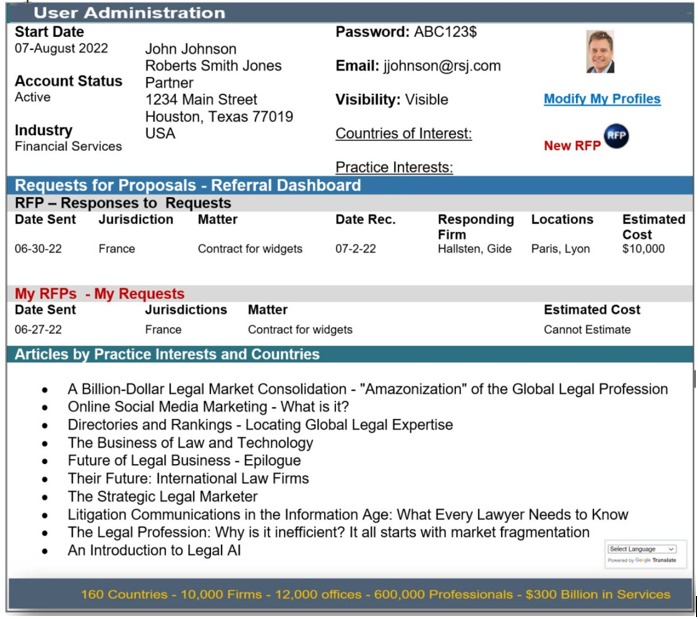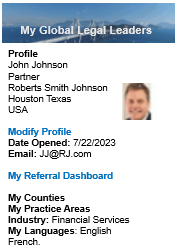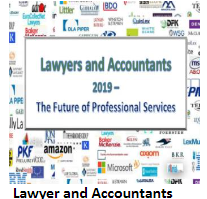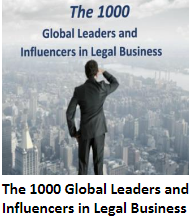Jack Newton Co-Founder & CEO, Clio
Jack Newton is the founder of Clio and a pioneer of cloud-based legal technology. Jack has spearheaded efforts to educate the legal community on the security, ethics and privacy issues surrounding cloud computing, and has become a nationally recognized writer and speaker on these topics. Jack also co-founded and is acting President of the Legal Cloud Computing Association (LCCA), a consortium of leading cloud computing providers with a mandate to help accelerate the adoption of cloud computing in the legal industry.
How satisfied are your clients? The
data indicates most lawyers don’t know. When we surveyed nearly 2,000 lawyers
in the U.S., we discovered 37 percent don’t collect client feedback at all —
and for the firms that do, 42 percent collect feedback casually and informally
in person, meaning they may only be hearing positive feedback affected by
courtesy bias. The implication of this is that poor client satisfaction could
be the most critical blind spot for today’s law firms.
The State of Client Satisfaction in the Legal Industry
To better understand the state of
legal services in the 21st century, we set out to assess client satisfaction on
an industry-wide scale by using a metric known as a Net Promoter Score (NPS).
Research has shown that NPS is one of the most reliable predictors for business
growth, and it’s based on more than just satisfaction or loyalty — it’s based
on the likelihood to recommend. Given that lawyers typically rely heavily on
referrals, NPS should be considered especially salient for law firms.
How satisfied are your clients? The
data indicates most lawyers don’t know. When we surveyed nearly 2,000 lawyers
in the U.S., we discovered 37 percent don’t collect client feedback at all —
and for the firms that do, 42 percent collect feedback casually and informally
in person, meaning they may only be hearing positive feedback affected by
courtesy bias. The implication of this is that poor client satisfaction could
be the most critical blind spot for today’s law firms.
Poor satisfaction is what ruins
businesses. If your clients aren’t satisfied, there’s little chance they’ll
hire you again or recommend you to someone else — and they may even deter
others through word of mouth or negative online reviews. It’s a bad prospect
for any law firm that wants to succeed.
On the other hand, the types of businesses that thrive in today’s digital economy are the ones obsessed with customer satisfaction. The internet has leveled the playing field, and your competitors are just a click away for your prospective clients; more than ever, your clients need to see a clear reason to hire you over another firm. Law firms that earn the satisfaction of their clients are the ones that see significant momentum in the future success and profitability of their business.
The State of Client Satisfaction in the Legal Industry
To better understand the state of
legal services in the 21st century, we set out to assess client satisfaction on
an industry-wide scale by using a metric known as a Net Promoter Score (NPS).
Research has shown that NPS is one of the most reliable predictors for business
growth, and it’s based on more than just satisfaction or loyalty — it’s based
on the likelihood to recommend. Given that lawyers typically rely heavily on referrals,
NPS should be considered especially salient for law firms.
Calculating NPS starts with asking a
cohort of clients a standardized question: On
a scale of 0 to 10, how likely are you to recommend your lawyer to a friend or
colleague? You then calculate the percentage of respondents who answered
within the 0 to 6 range (known as “Detractors”) and subtract that from the
percentage that responded with a 9 or 10 (known as “Promoters”). Those
responding with 7 or 8 (known as “Passives”) neither subtract nor add to an
NPS. What you’re left with is a minimum score of -100 (100% Detractors) and a
maximum score of 100 (100% Promoters).
For perspective, some of the most
successful businesses in the 21st century have achieved incredible growth based
significantly on highly favorable NPS. These companies (and scores) include
Amazon (62), Netflix (68), Apple (76), Starbucks (77), and Costco (79).[1]
Where does NPS net out for the legal
profession? After collecting data from a cohort of over 1,300 American
consumers on their experiences working with a lawyer, we calculated a benchmark
NPS of 25 for the legal profession as a whole. This is based on a breakdown of
48% Promoters, 30% Passives, and 23% Detractors. While nearly half of clients
would highly recommend their lawyer, nearly a quarter of all clients would
actually dissuade others from their
lawyer.
While an NPS of 25 isn’t entirely bad, it’s nothing to celebrate. Other industry benchmarking studies put this number at the same level as airlines (26), banks (26), wireless carriers (25), and credit card companies (23)—none of which are known for exceptional service.[2] The deeper implications imply that poor client satisfaction is hindering growth in the average law firm.
The Power of Satisfaction in Driving New Business
In speaking with countless lawyers and
other legal professionals, one of the most common sentiments they share is that
managing a business is incredibly difficult. Most wish it were easier.
One of the most difficult challenges
for lawyers is generating business for their firm. Many see this as an uphill
battle, where every step is a part of a grind that never gets easier. The
problem with this mind frame is it fixates on effort as a burden. But effort is
only one side of the equation, one that’s focused entirely on inputs. On the
other side are your business outputs. Unlike inputs, which are a limited
resource, the work put into maximizing outputs can have exponential returns. In
other words, rather than putting more effort into your business, think about
how to get more returns from the effort you already put in.
The business researcher and consultant
Jim Collins has written and spoken prolifically about the concept of “the
flywheel.” The idea behind the flywheel is that it takes a sustained and
constant effort to build momentum; but once that wheel starts to turn, it
serves as an energy store, and maintains much of its momentum even once force
is no longer applied to it. The wheel wants to turn of its own volition, and
any ongoing effort only speeds it up. The effect is a perpetual compounding of
return-energy for every bit of continued effort.
The key to developing a flywheel
effect for your business is to (1) understand what components will build
momentum and then (2) aligning your efforts in the right direction.
Which brings us back to NPS. Client
satisfaction, reputation, referrals, and repeat business are all components
that build off each other to create momentum and drive law firm success. A
positive client experience will drive more repeat business and referrals, which
in turn will bring more clients to your firm, who in turn will drive more
repeat business and referrals. Success begets more success. This is the client
experience-driven flywheel in motion, and it's one of the most powerful growth
levers law firms have at their disposal.
What contributes to positive client experiences? Our NPS research demonstrated a strong connection between NPS and factors that were intrinsically related to the ease (or difficulty) of working with a law firm: ease in understanding case expectations, bedside manner, and overall responsiveness to communications. Since the growth prospects of any law firm rely so heavily on client satisfaction (as measured by NPS), focusing on client experiences should be how lawyers think about their future success.
Forecasting the Future of Success in the Legal Industry
The legal industry is transitioning in
a way similar to any other during times of rapid technological change. The key
to weathering these changes — and prospering through these times — is to
recognize where problems lie and what efforts will have the most returns in
solving them.
Today, technologies are unlocking new
opportunities for lawyers to get more from their efforts. With these opportunities,
lawyers have more options for how they structure and deliver legal services,
and in how they design client experiences. Technology also has the potential to
provide better data in understanding what’s working in today’s law firms and
what needs improvement.
It’s an exciting time to be practicing
law, but it’s also a time that will require firms to focus on client experience
in order to be truly successful.
[1] What Do Companies with High Net Promoter Score Have
in Common? Retently (March 19,
2019), https://www.retently.com/blog/companies-high-nps/
(e.g., Amazon, Netflix, Starbucks); Tom Smith, Top 10 U.S. Net
Promoter Scores (NPS) for 2013, Insights
from Analytics (Aug. 14, 2013), http://www.insightsfromanalytics.com/blog/bid/324678/Top-10-U-S-Net-Promoter-Scores-NPS-for-2013 (e.g., Apple); Net Promoter Score
Benchmarks for Fortune 500 Companies, Customer
Guru, https://customer.guru/net-promoter-score/fortune-500 (e.g., Costco).
[2] Net Promoter Score Benchmark Study, Temkin Group (2017), https://temkingroup.com/product/net-promoter-score-benchmark-study-2017/.





 Software
Software Law
Law Legal
Legal






